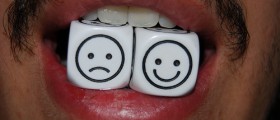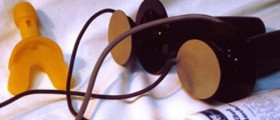
Lithium Carbonate in Psychiatry
Side Effects from Lithium Carbonate
Anyone who is considering taking lithium needs to be informed of the side effects. The most common adverse effects of the drug are kidney and cardiovascular problems. Dehydration has also been reported by persons taking lithium. Only if a prescribing physician, probably a psychiatrist, decides that the desired effects are stronger than the possibility for harm will the patient be prescribed lithium. If there are no other medications that the person is responding to, but the risk of harm is high, lithium will be allowed but the patient will most likely be hospitalized. Further, studies have shown that lithium could interfere with fetus development in women who take it during pregnancy. The most commonly observed defects include heart problems. It is advised that a pregnant woman stays away from lithium at least during the first trimester whenever possible. Long term lithium usage puts a strain on the renal function and could lead to toxicity. Once the patient stops taking the medication the condition of the kidneys should go back to the way it was before lithium. Different types of morphologic changes have also been observed in long term users, but it should be noted that similar occurrences are seen in individuals affected by bipolar disorder who were never on the drug. Patients who have never had kidney problems prior to starting to take lithium, and especially those who have, are subjected to regular urine analysis to make sure the medication is not causing any additional problems. Even if the newly observed changes in kidney function are still within the normal range most medical care professionals will reassess the treatment options for the patient to avoid any permanent damage. Also, during lithium therapy the patient is advised to eat a healthy diet which includes plenty of liquids, especially water, to aid the kidneys. If the patient experiences lithium induced diarrhea or excess sweating, additional liquids and salt need to be included in the daily diet. Further, individuals who suffer from thyroid gland disorders need to be monitored regularly and in some instances secondary thyroid treatment needs to be included.While Taking Lithium
Patients who take lithium and their caregivers or family members must report symptoms such as tremors, vomiting, diarrhea, muscular weakness, and drowsiness to the prescribing doctor as such problems could be signs of toxicity. In this case the lithium would be discontinued immediately. In addition, it has been proven that the medication interferes with physical and mental alertness so operating a motor vehicle or heavy machinery should be done with caution. Patients should also wear a wrist tag indicating they are taking the medication so that medical care providers such as dentists or emergency room doctors would be made aware. When it comes to drug interaction, lithium is known to interfere with haloperidol and lead to fever, general feeling of weakness and fatigue, confusion, and other physical symptoms. Patients who take both medications need to be examined on a regular basis for signs of toxicity so that the treatment is stopped and changed as soon as possible. Similar interactions are to be expected with anti psychotic medications. Further, the dosages of lithium should be decreased for patients who are taking diuretics as the sodium deficiency may interfere with the kidneys getting rid of lithium. Subsequently, the levels of lithium in the body would be higher than normal and the possibility for toxicity increased. Lastly, patients who need to take Non Steroidal Anti Inflammatory (NSAIDS) drugs and lithium at the same time require regular checkups and screening tests, especially during the early stages of taking NSAIDS or after discontinuation. As is the case with many other similar interactions, lithium toxicity is a possible consequence.
















Your thoughts on this
Loading...